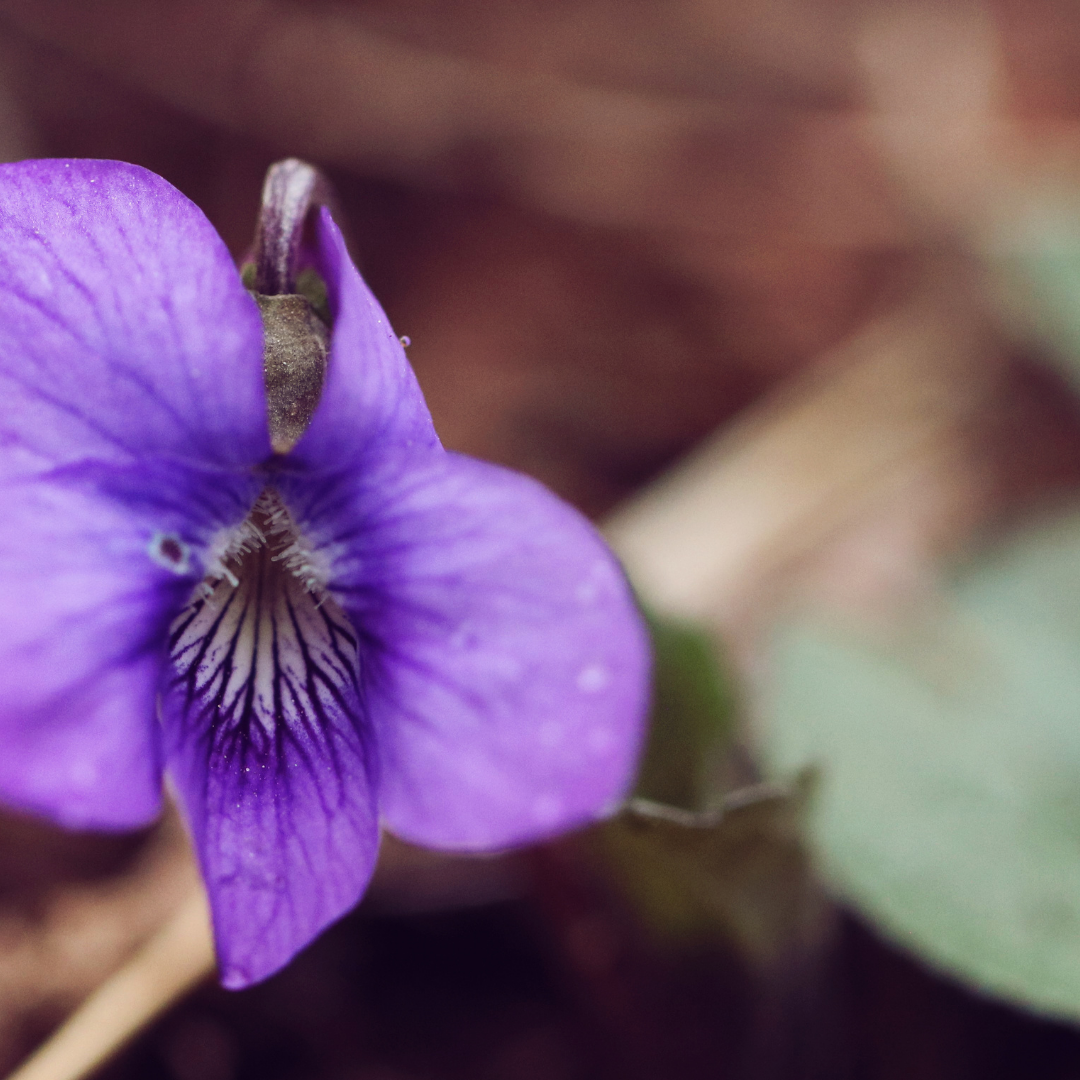

I think almost everyone has come across a wild violet at some point in their life. Most people mistake this dainty little flower with heart shaped leaves as a "weed". This bright cheery plant is one of the first sights that spring has arrived and it is far from a "weed". The wild violet is full of medicinal benefits and has many different ways to prepare it for use.
 Lymphagogue :
Lymphagogue :An agent that increases the formation and flow of lymph. Violet may help clear stuck, stagnant and congested lymphatic areas.
Demulcent :
a demulcent substance or agent, often mucilaginous, as for soothing or protecting an irritated mucous membrane.
Anti-Inflammatory :
reduces inflammation (redness, swelling and pain) in the body.
Expectorant :
‘expelling from the chest’, used to treat coughs.
Alterative :
over time may restore the bodies proper function and increase health.
Vulnerary :
helpful in treating or healing wounds.
Anti-tumor :
preventing or inhibiting the growth of tumors.
Anti-rheumatic :
reduces inflammation and pain in the joints, muscles, or connective tissues.
Diuretic :
helps with sodium and water retention.
Anti-oxidant :
neutralize free radicals (unstable atoms that can damage cells, causing illness and aging.). Helps reduce oxidative stress and inflammation.
Contains vitamin A, C, magnesium and calcium.

Violet leaf & honey cough syrup
Disclaimer: We are not medical professionals. If you need medical advice please seek a doctor or medical professionals.
Sources:
https://www.ncbi.nlm.nih.gov/pmc/articles/PMC3977805/
https://en.wikipedia.org/wiki/Viola_sororia#Uses
https://www.merriam-webster.com/
Book : Midwest Medicinal Plants By: Lisa M. Rose
